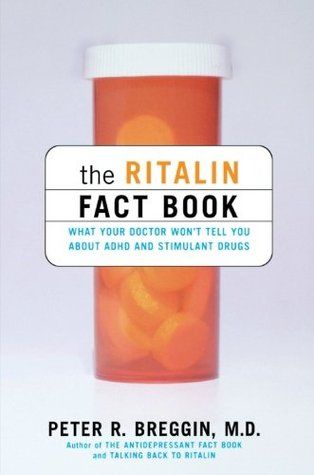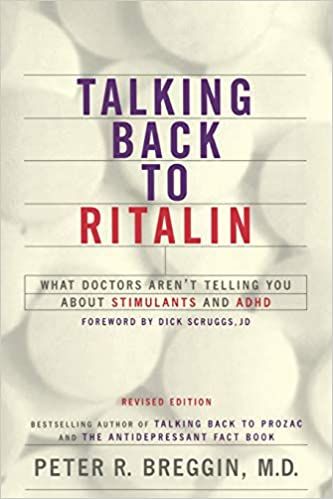Your Drug May Be Your Problem: How and Why to Stop Taking Psychiatric Medications
The withdrawal and long-term side effects of many psychiatric medications can cause symptoms that are similar or worse than the symptoms for which the patient is being medicated in the first place. Author Peter R. Breggin, along with David Cohen, Ph.D., were among the first to address these major issues, in this spectacular book which was way ahead of it’s time. Since the book’s first publication in 1999, there have been numerous studies confirming the harmful side effects and withdrawal symptoms of these drugs, and even the FDA acknowledges these problems.
Your Drug May Be Your Problem: How and Why to Stop Taking Psychiatric Medications goes into great detail, backed by thorough research, about the particular side effects and withdrawal symptoms for all different kinds of psychiatric medications; from antidepressants to mood stabilizers to stimulants. The book explains how doctor’s often do not take enough time to examine the patient, misdiagnose the patient, and as a result prescribe psychiatric drugs that are not needed, and often do more harm than good. This quick decision made by the doctor can impact years or even decades of a patient’s life. Your Drug May Be Your Problem educates patients and doctors about the correct way to gradually stop taking psychiatric drugs, and outlines the process for withdrawing from the medications. The book has also been fully updated to include new research studies and medications 0n the market.
About the Author
Peter R. Bregg, M.D., is a a psychiatrist who is very well known for helping set the stage for modern criticism of psychiatric treatments and psychotropic drugging. He has promoted so much success in the field of mental health that he has acquired the nickname “conscience of psychiatry.” HIs reform efforts began in the 1970s, and resulted in almost a complete cease in the use of procedures like lobotomy and psychosurgery in the Western World. Then in the 1990s, he and his wife Ginger were able to stop a federal eugenics project that was planned on America’s inner-city children. You can find more details about this in the book he co-authored with Ginger, The War Against Children of Color.
Breggin has been a full-time consultant at NIMH, as well as for the FAA. He has published over 20 books and numerous scientific articles. Some of his books include Toxic Psychiatry, The Antidepressant Factbook, and Talking Back to Prozac. His latest book is Covid-19 and the Global Predators: We are the Prey. Dr. Breggin is also the founder and director of The Center for the Study of Emphatic Therapy, Education and Living. He attended Harvard, and currently resides in Ithaca, NY. Find out more on his website, www.breggin.com.









